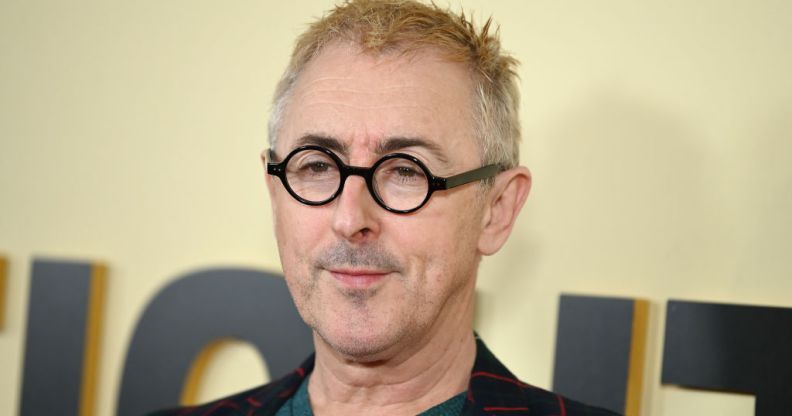Alan Cumming returned his OBE due to ‘toxicity’ of British empire: ‘Happy birthday to me’

Alan Cumming is one of Hollywood’s most high-profile bisexual male actors. (Getty)
Bisexual actor Alan Cumming has marked his birthday by revealing he handed back his OBE due to the “toxicity” of the British Empire.
The Scottish star received the order of the British Empire (OBE) award in 2009 in the Queen Elizabeth II’s birthday honours for his services to film, theatre, arts, and his LGBTQ+ activism.
An OBE is the second highest ranking Order of the British Empire award and stands for Officer of the Order of the British Empire. It is awarded to people who make great impact in their field of work.
But, in an iconic move to mark his 58th birthday on Friday (27 January), Cumming revealed he had handed the honour back.
Cumming, who has US and British citizenship, stated on Instagram he was “incredibly grateful” to receive the award.
But he explained that he was honoured at a time when same-sex marriage was still illegal in the US and the Don’t Ask, Don’t Tell policy was in place in the military.
The discriminatory Don’t Ask, Don’t Tell policy was in effect from 1994 to 2011 and allowed gay and lesbian citizens to serve in the military – but only on the condition they didn’t make their sexual orientation public.

In the post, Cumming reshared a statement he gave at the time, in which he described seeing the honour as “as encouragement to go on fighting for what I believe is right and for what I take for granted as a UK citizen”.
“It makes me very proud to be British, and galvanised as an American,” the statement added.
“The Queen’s death and the ensuing conversations about the role of monarchy and especially the way the British Empire profited at the expense (and death) of indigenous peoples across the world really opened my eyes.
He continued: “So I returned my award, explained my reasons and reiterated my great gratitude for being given it in the first place. I’m now back to being plain old Alan Cumming again. Happy birthday to me!”
Comments under the post have praised Cumming’s stance, with one follower calling his action “amazing”, and another suggesting he should be awarded the title of “order of being excellent”.
One comment read: “What an amazing thing you have done. In Canada, the impacts of colonisation and residential schools are felt deeply. I’m glad to know the conversations happening overseas are having such a profound impact. Happy Birthday to you!”
Another said: “Good on you! I’m so pleased you’ve returned it, not least because it draws attention to the criminal legacy of the British Empire. It’s time to reward citizens with something free of that taint. A living wage would be a good start.”
Last year, Cumming bravely opened up about his difficult childhood and how his abusive father left him feeling “powerless”.
Many stars have returned their honours
People who receive an honour are not obliged to keep it, or accept it, and many well-known names have refused honours or returned them.
In 1986, Charlie and the Chocolate Factory author Roald Dahl rejected an OBE in the New Year’s Honours.
Nigella Lawson also declined the offer of an OBE in 2001, she explained: “I’m not saving lives and I’m not doing anything other than something I absolutely love.”
The late David Bowie also turned down two honours, citing: “I would never have any intention of accepting anything like that. I seriously don’t know what it’s for. It’s not what I spent my life working for.”
Comedy duo Dawn French and Jennifer Saunders turned down their OBEs “for services to comedy drama” in 2001.
Saunders told Source magazine: “At the time, we felt that we were being paid very well to have a lot of fun. It didn’t seem right somehow. We didn’t deserve a pat on the back. It felt a bit fake to stand alongside people who devoted their lives to truly worthy causes.”
Michael Sheen, who was awarded an OBE in 2009, handed it back years later as he didn’t want to be a “hypocrite”.
In an interview with journalist Owen Jones, he said: “I just realised I’d be a hypocrite if I said the things I was going to say in the lecture about the nature of the relationship between Wales and the British state.”
How did this story make you feel?

